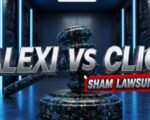A former University of New Orleans basketball player has come clean about his role in a major sports betting scheme. Dae Dae Hunter admitted on national television that he shaved points during games to help bettors win money, citing financial pressures as his reason.
Scandal Breaks in College Basketball
The NCAA has cracked down on gambling violations in recent months. This case involves several players from different schools who faced bans for betting related activities.
Hunter, along with teammates Dyquavian Short and Jamond Vincent, lost their eligibility after the NCAA found evidence of game manipulation. The investigation started with a tip about unusual betting patterns during the 2024 25 season.
Other players from Arizona State and Mississippi Valley State also got caught in similar schemes. The NCAA announced penalties for six athletes in total, highlighting a growing problem in college sports.
Experts say the rise of legal sports betting across the US has fueled these issues. States like New York and California report billions in betting revenue each year, tempting young athletes.

Hunter’s Shocking Admission on TV
Hunter appeared on Good Morning America and shared his side of the story. He explained how he got involved to support his newborn child.
I did go out there and not do my best, Hunter said. He described missing shots on purpose to affect game outcomes.
The interview revealed that Hunter felt pressure from bettors. He claimed 95 percent of the time, they succeeded in their plans.
Hunter also admitted lying to investigators at first. He thought he could avoid punishment by denying everything.
This confession comes amid broader discussions about athlete pay. Many argue that low stipends push players toward risky choices.
Public reaction has been mixed. Some fans sympathize with Hunter’s family situation, while others condemn the damage to sports integrity.
Details of the NCAA Investigation
The probe began in October 2025 after alerts from sportsbooks about irregular bets. Investigators reviewed game footage and betting records.
They found patterns where players underperformed to hit specific prop bets or spreads. For example, in one New Orleans game, the team failed to cover the line suspiciously.
The NCAA Committee on Infractions ruled that the players either shaved points or shared insider info. Penalties include lifetime bans from college sports.
Here are key findings from the investigation:
- At least 30 current or former players are under review for gambling ties.
- Violations occurred in games against teams like UIW, leading to player suspensions.
- Sportsbooks detected anomalies in real time, prompting quick action.
This scandal echoes past cases, like the 1951 CCNY point shaving ring that involved multiple teams.
Impact on Teams and Players
The University of New Orleans basketball program suffered major setbacks. Four top scorers sat out games starting in January 2025 due to the probe.
The team struggled without key players like leading scorer James White. Their season record dropped, affecting conference standings.
For the banned players, futures look dim. Hunter expressed regret but hopes to play professionally overseas.
Coaches and schools now face stricter rules. Many programs have added gambling education sessions for athletes.
A table of affected players and their schools:
| Player Name | School | Penalty |
|---|---|---|
| Dae Dae Hunter | University of New Orleans | Lifetime ban |
| Dyquavian Short | University of New Orleans | Lifetime ban |
| Jamond Vincent | University of New Orleans | Lifetime ban |
| Chatton Freeman | Arizona State | Eligibility revoked |
| Donovan Sanders | Mississippi Valley State | Eligibility revoked |
| Alvin Stredic | Mississippi Valley State | Eligibility revoked |
This data shows the widespread nature of the issue across conferences.
Broader Implications for Sports Betting
Legal betting has exploded since the 2018 Supreme Court ruling. The industry hit over 100 billion dollars in wagers in 2024 alone.
Critics warn that easy access via apps increases risks for young athletes. Some states consider bans on college prop bets to protect integrity.
The NBA faced a similar scare with irregular betting on players like Terry Rozier. Leagues are now investing in monitoring tech.
Advocates push for better athlete compensation. With NIL deals, players can earn from endorsements, reducing financial desperation.
This scandal may lead to federal oversight. Lawmakers discuss nationwide rules to curb gambling harms.
Looking Ahead in College Sports
The NCAA plans more investigations into betting claims. Schools must report suspicious activities promptly.
Fans and bettors should watch for red flags like sudden line movements. Education remains key to preventing future scandals.
Hunter’s story serves as a cautionary tale. It highlights the human side of sports pressures.
Share your thoughts on this betting scandal in the comments below. Did Hunter’s reasons change your view? Spread the word by sharing this article with fellow sports fans.








